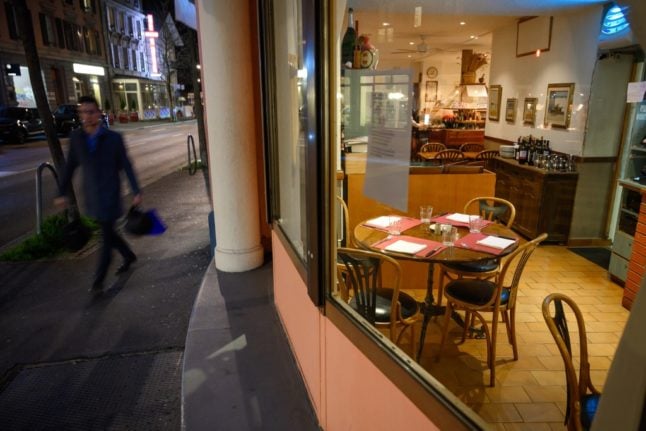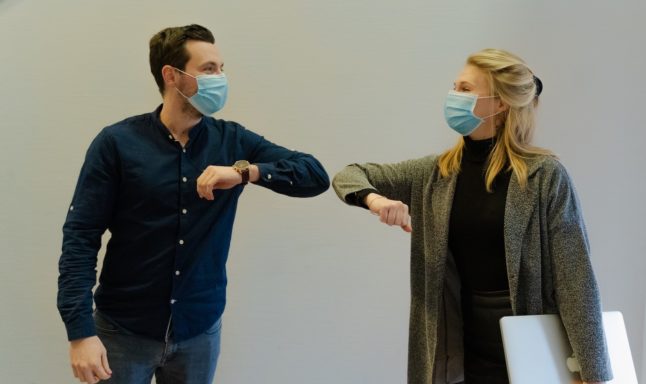More than a month after closing down, restaurants and cafés in Geneva, Vaud, Neuchâtel, Fribourg and Jura will resume their operations on December 10th. In Valais, the re-opening is planned for December 13th.
The cantons said that the decision to re-open “was made in a concerted manner and with a desire for harmonisation and clarity” among the neighbouring regions.
Authorities noted that the decision to re-open was driven by the steadily declining coronavirus infection rates in the regions, which until the first week of November had been among the most impacted in Switzerland.
The establishments will, however, have to implement several measures to prevent the spread of coronavirus among customers and staff:
- Tables must be at least 1.5 metres apart and masks must be worn if customers are not seated.
- Eating will only be permitted while sitting.
- Only up to four people will be allowed per table.
- Contact details for tracing must be provided.
- Establishments must close from 11 pm to 6 am. The only exception will be made on December 31st, when they will be able to stay open until 1 am.
Authorities said they would monitor “for the possible effects of the re-opening on the pandemic. This means the decision can be revoked if the health situation requires it”.
READ MORE: Cafés and restaurants in most of French-speaking Switzerland to re-open on December 10th
Heated terraces
As there is a lower risk for coronavirus transmission in the open air, restaurants and cafés will be allowed to install special heaters outdoors, to encourage customers to eat outside.
This procedure requires a special permission, and municipalities will grant this authorisation on an exceptional basis.
Different rules for bars
Although the same regulations apply to restaurants in all six cantons, there is divergence concerning pubs.
In Geneva, Fribourg and Valais, bars will have to follow the same rules as restaurants.
But Vaud and Neuchâtel are more restrictive, allowing only bars that serve food to re-open. This means that customers must order food in those bars; if that is not an option, the establishments will remain closed.
In Jura, bars where customers can eat will remain open until 11 pm. But those that don’t serve food will have to close at 6:30 pm.



 Please whitelist us to continue reading.
Please whitelist us to continue reading.
Member comments